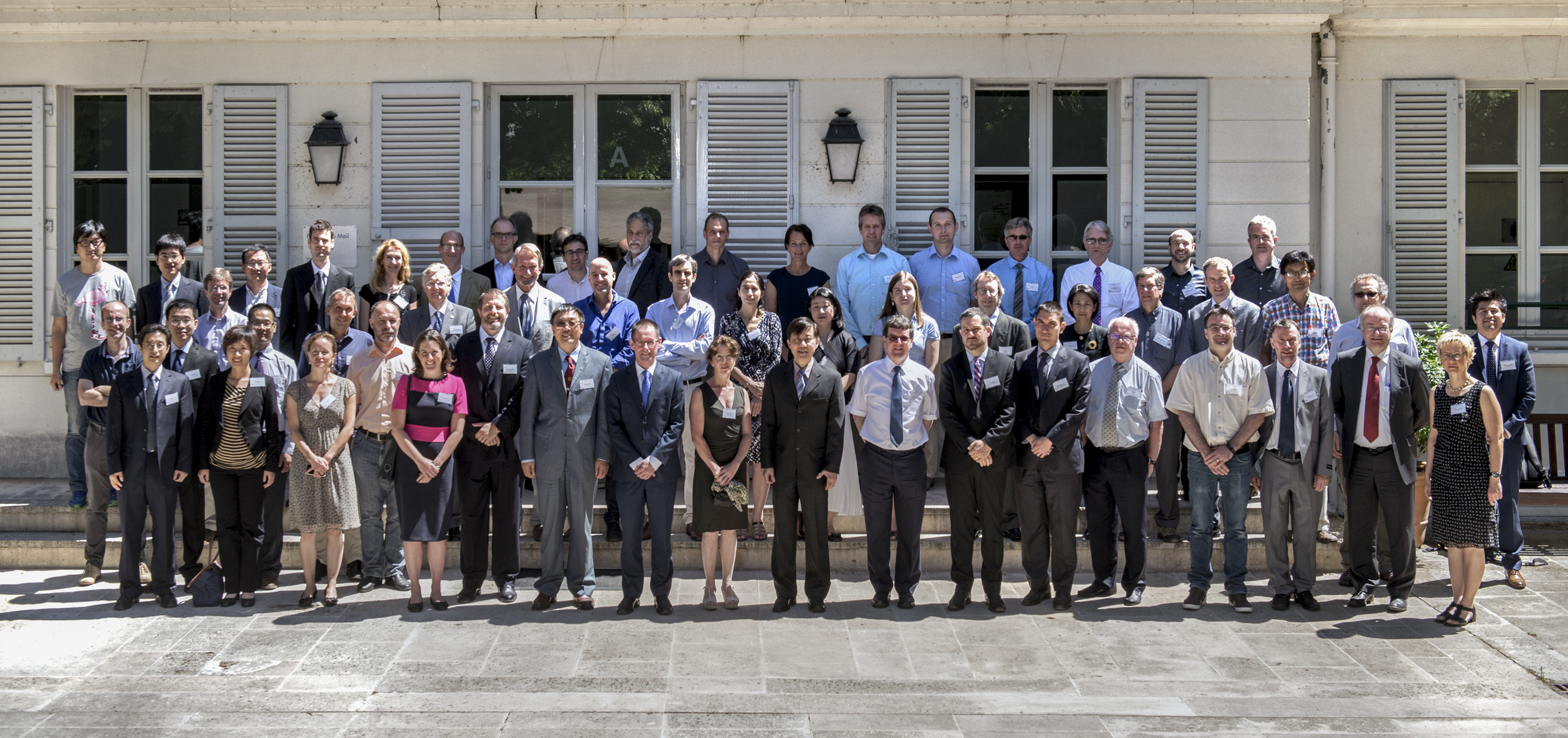BIPM Workshop on Global to Urban Scale Carbon Measurements
30 June-1 July 2015 (at the BIPM)
Steering Committee
Dr M.J.T. Milton (Chair)
BIPM
Dr J. Whetstone
NIST (United States)
Ms J. Burston
NPL (United Kingdom)
Dr W. Zhang
WMO
Dr O. Tarasova
WMO
Dr A. Samuel
NMIA (Australia)
Dr R. I. Wielgosz
BIPM
Background
Managing greenhouse gas emissions and uptake is central to effective mitigation policies. As reduction targets are set nationally, policy performance becomes a central issue. Greenhouse gas (GHG) inventory data will be the principle metric used to gauge policy performance. Following the development of previous large-scale, emission reduction strategies, it is now clear that success requires consistent, independent, scientifically-recognized measurement methodologies and data to support policy decisions (e.g., ozone depletion, acid rain, air quality in large cities and regions). For greenhouse gases, high quality, and coordinated atmospheric observational information is essential to both ensure success and to inform policy-makers implementing GHG reduction policies. Assessing progress towards and the achievement of reduction targets requires scientifically-sound information based on robust GHG measurement systems having accuracy performance consistent with reduction target values. The verification of inventory values using independent methods is central to demonstrating their scientific validity.
Aims
The aims of the workshop are to identify requirements for advanced measurements, standards, reference data, and instrument comparisons for carbon measurement and other related climate variables to enable a complete global monitoring system for greenhouse gases to be operational and useful for validated greenhouse gas flux and emission calculations and for the verification of emission inventories. Furthermore, approaches to be undertaken for the development of an international roadmap for standards, reference data, and instrument comparisons for global greenhouse gas measurements and other related climate variables and greenhouse gas emission inventories will be elaborated.
Topics
The workshop is organized around three topic areas:
- Carbon measurement and other related climate variables: Global systems, principles and traceability
- Megacities and Metrology Needs for Supporting Greenhouse Gas Mitigation - Urban Greenhouse Gas Domes
- Standards for greenhouse gas emission inventories
Aims of Topic A: Carbon measurement and other related climate variables: Global systems, principles and traceability
Concentrating on carbon measurement and other related climate variables, the session will:
- provide an overview of the progress and requirements in standards, reference data and instrument comparisons to enable accurate and validated measurements of global carbon and other related climate variables;
- provide examples of global climate variable monitoring programs and their approach to incorporate traceable measurements and links to NMI activities;
- describe novel calibration and standards programs that have been designed to meet the needs of the climate variable measurement community.
Aims of Topic B: Megacities and Metrology Needs for Supporting Greenhouse Gas Mitigation - Urban Greenhouse Gas Domes
Managing emissions, especially CO2, is central to effective mitigation policies. Reduction targets are being set in a number of nations. Emissions inventories will be the metric by which policy compliance is gauged. Assessing progress toward and achievement of reduction targets requires scientifically-sound and internationally-recognized information based on robust GHG measurement systems. Capability to independently verify inventory values is a significant measurements and standards challenge. Reliable information on greenhouse gas concentration and flux will be required both at national and international levels. Developing the measurements and standards capabilities required is a significant measurement science challenge given likely target levels. Discussion will focus on existing and planned activities in the megacity context and requirements for the development of measurement methods, standards and comparisons to underpin the accuracy of GHG emission data and calculations.
Aims of Topic C: Standards for greenhouse gas emission inventories
- Summarise the existing position of reporting from all levels (installations, projects, cities, countries)
- Highlight the biggest areas where improvement in measurement capabilities are needed, by answering the following questions:
- Are uncertainties reported? Where are the uncertainties largest?
- What new project types should inventory development be focussed on?
- Where are new/more granular/more specific emissions data and factors required?
- Where is there a need for better consistency?
- Discuss the opportunities and challenges for incorporating forest carbon, soil carbon and land use into inventories of all kinds
- Agree a priority list of Essential Climate Variable (ECVs) based on which could be / are required to cover inventory data needs

